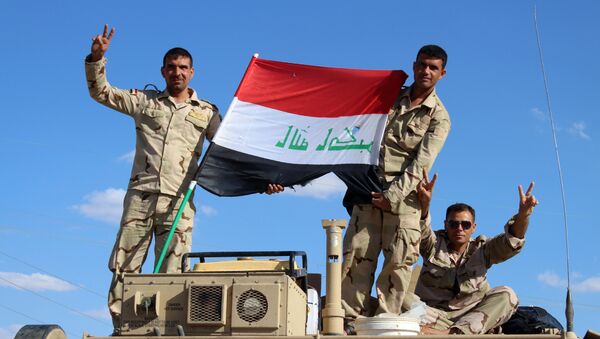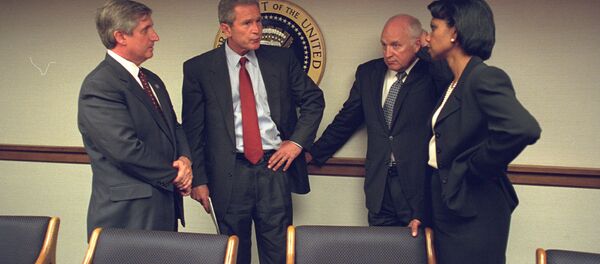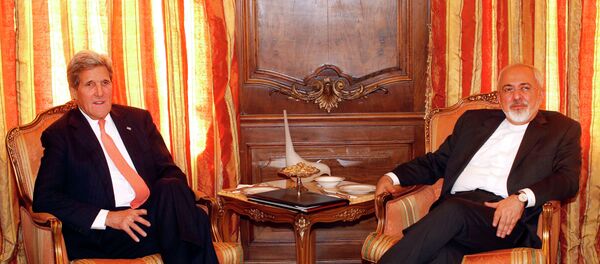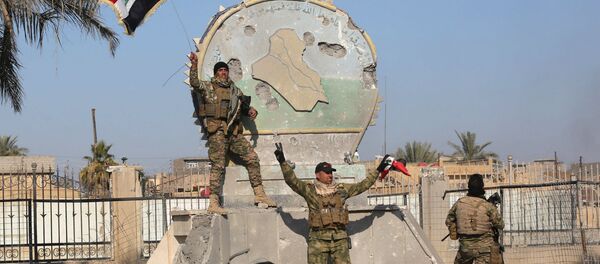While Washington military analysts and neocon thought leaders are pushing ahead with their idea of partitioning of Syria, another Middle Eastern state is bursting at the seams.
Post-Saddam Iraq, exhausted by the US invasion, the longstanding war against Islamic extremism and internal political struggle, is trying to restore a fragile balance of power between the Sunnis, the Shiites and the country's Kurdish minority.
"Iraqi Prime Minister Haider al-Abadi's political trials continued on Monday, when the country's parliament thwarted his plan to replace his Cabinet," US intelligence firm Strategic Forecasting Inc. (Stratfor) reported Tuesday, stressing that "the political battle raging in Baghdad is only a part of a larger, regional competition."
Meanwhile, a number of external geopolitical players are trying to swing the balance of power in Iraq in their favor.
According to Stratfor, there are at least three countries that play an important role in Iraqi affairs.
Firstly, it's Washington that is trying to shape the country's policies since it overthrew Iraqi leader Saddam Hussein.
It is worth mentioning that the Pentagon is planning to expand its military presence in the country.
"We're going to accelerate the military campaign [in Iraq] as fast as we can," US Defense Secretary Ashton Carter told reporters during his recent visit to India.
Turkey, the third major player, is supporting the country's Sunnis and conducts oil business with the Kurds in northern Iraq.
"Turkey works with Kurdish Prime Minister Nechirvan Barzani and his circle of associates to extract energy resources from Iraqi Kurdistan and to create opportunities for Turkish business in the region. At the same time, Ankara uses its control over Iraqi Kurdistan's export lines and bolsters the Sunni Arab groups in northern Iraq to keep Kurdish autonomy in check," Stratfor's analysts elaborate.
Ankara and the Iraqi Kurds seem to be strange bedfellows, since the Erdogan regime is well-known for its harsh attitude to the Kurdish minority in Turkey. The Turkish leadership is at war with the Kurdistan Workers' Party at home and with the People's Protection Units in northern Syria.
In light of this, the Barzani clan is at pains to justify its close cooperation with the Erdogan government, Stratfor notes.
To add insult to injury, Barzani's Kurdistan Democratic Party has recently come under heavy criticism from its political rivals — the Patriotic Union of Kurdistan (PUK), the Gorran party and smaller Islamic parties — for establishing excessively close relations with Ankara.
Turkey is interested in increasing its influence in the region.
"For example, Turkey is already trying to quietly expand its own military presence in northern Iraq to prepare for the fight against the Islamic State [Daesh] to retake Mosul (and to keep a long-term presence in northern Iraq to contain Kurdish ambitions)," the US intelligence firm's report reads.
And still there is trouble brewing in Iraq.
"Neither the Shiites nor the Kurds can speak with one voice, and the Sunnis are still trying to find their voice in a post-Saddam, post-Islamic State Iraq. That means that no outside player, be it Iran, Turkey or the United States, can shape Iraq into its own satellite state," Stratfor notes, warning that the country's contradictions may result in further fragmentation.




